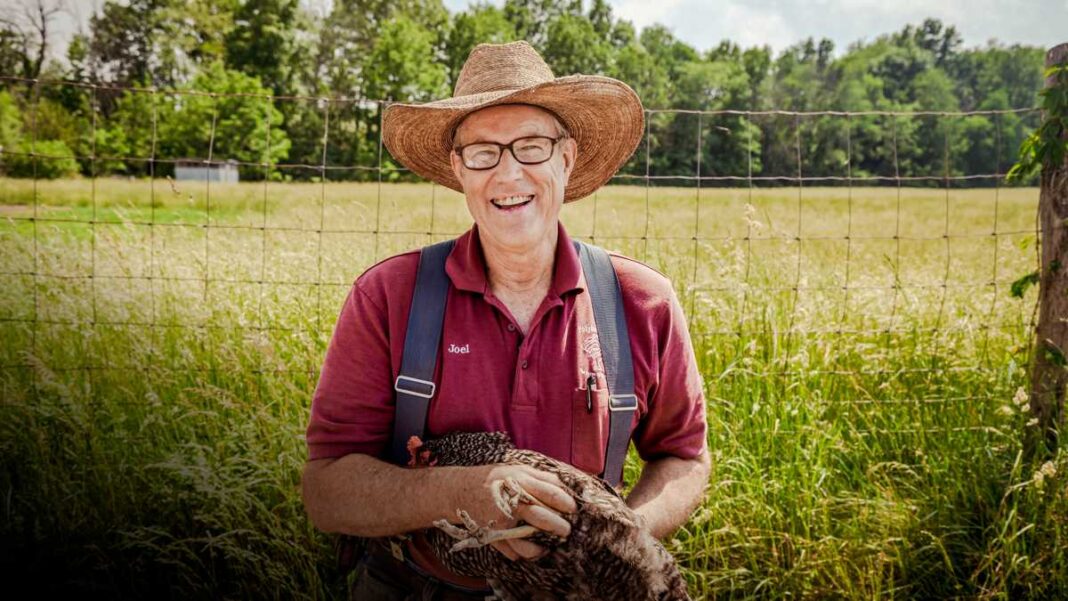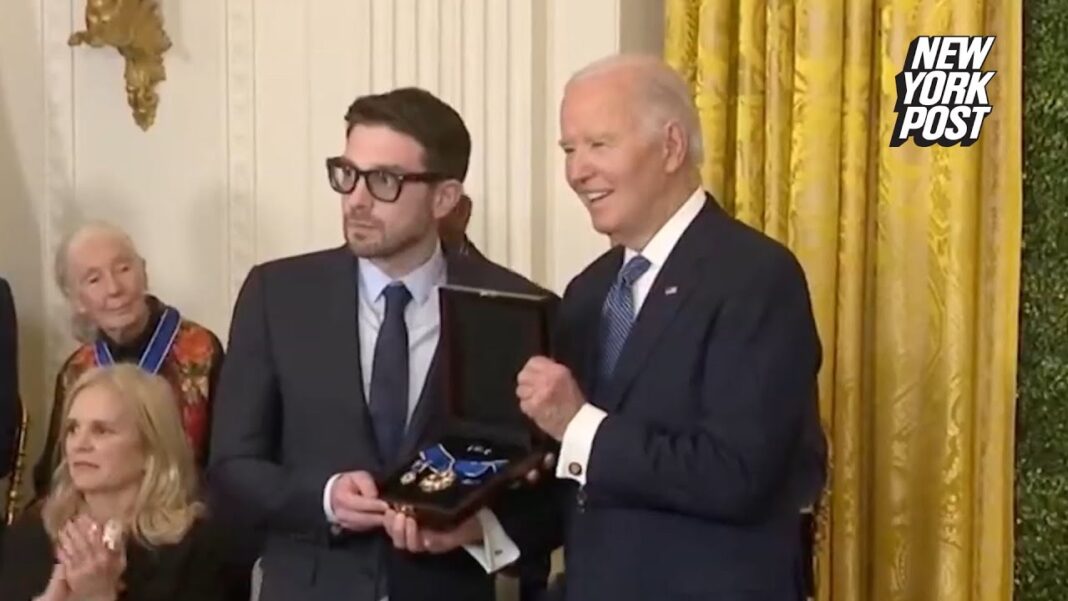Salatin’s Polyface Farms in Virginia’s Shenandoah Valley is a pilgrimage destination for many organic farming enthusiasts.
SWOOPE, Va.—Joel Salatin, the self-described “Christian Libertarian environmentalist capitalist lunatic farmer,” enthusiastically engages in a free-flowing conversation as he navigates the bumpy mountain roads that wind through his 700-acre Polyface Farms in Virginia’s Shenandoah Valley.
He showcases his whimsical sense of humor while driving a faded early-1980s Ford Bronco that has no windows and only gets washed by the rain.
“Most self-respecting farmers are supposed to have a side-by-side ATV, but I’m not a self-respecting farmer,” Salatin said. “I’ve got this old $2,000 Bronco. And it gets the job done.”
Regarded by many as the nation’s foremost authority on regenerative farming, Salatin is the author of more than a dozen books on the topic and travels around the world speaking at conferences and serving as a generously paid consultant.
An advocate for local food networks, independent farmers, and what he calls “personal choice in food sourcing,” he is outspoken about what he believes is “extreme government overreach” in agriculture.
After former President Donald Trump won a return to the White House in November, Salatin announced on his blog that the president-elect’s transition team contacted him to serve as a U.S. Department of Agriculture adviser and that U.S. Rep. Thomas Massie (R-Ky.) would serve as secretary of agriculture.
Instead, Trump nominated Brooke Rollins to head the Department of Agriculture.
Still, the 64-year-old Salatin said he is hopeful that the incoming Trump administration—which may include a Department of Health and Human Services led by Robert F. Kennedy Jr.—will remove government regulations that “are detrimental to farmers, and subsequently detrimental to consumers.”
“A key to improving the quality of our food is to lessen regulations so people could get locally sourced food and not have to get food shipped from across the country,” Salatin said.
Cumbersome Regulations
He noted that there are thousands of farm entrepreneurs ready to launch their clean food alternatives but that they can’t get to the marketplace because of these food regulations.
“Four companies control 85 percent of what we eat in America,“ he said. “What we need is freedom of choice with our food.”









